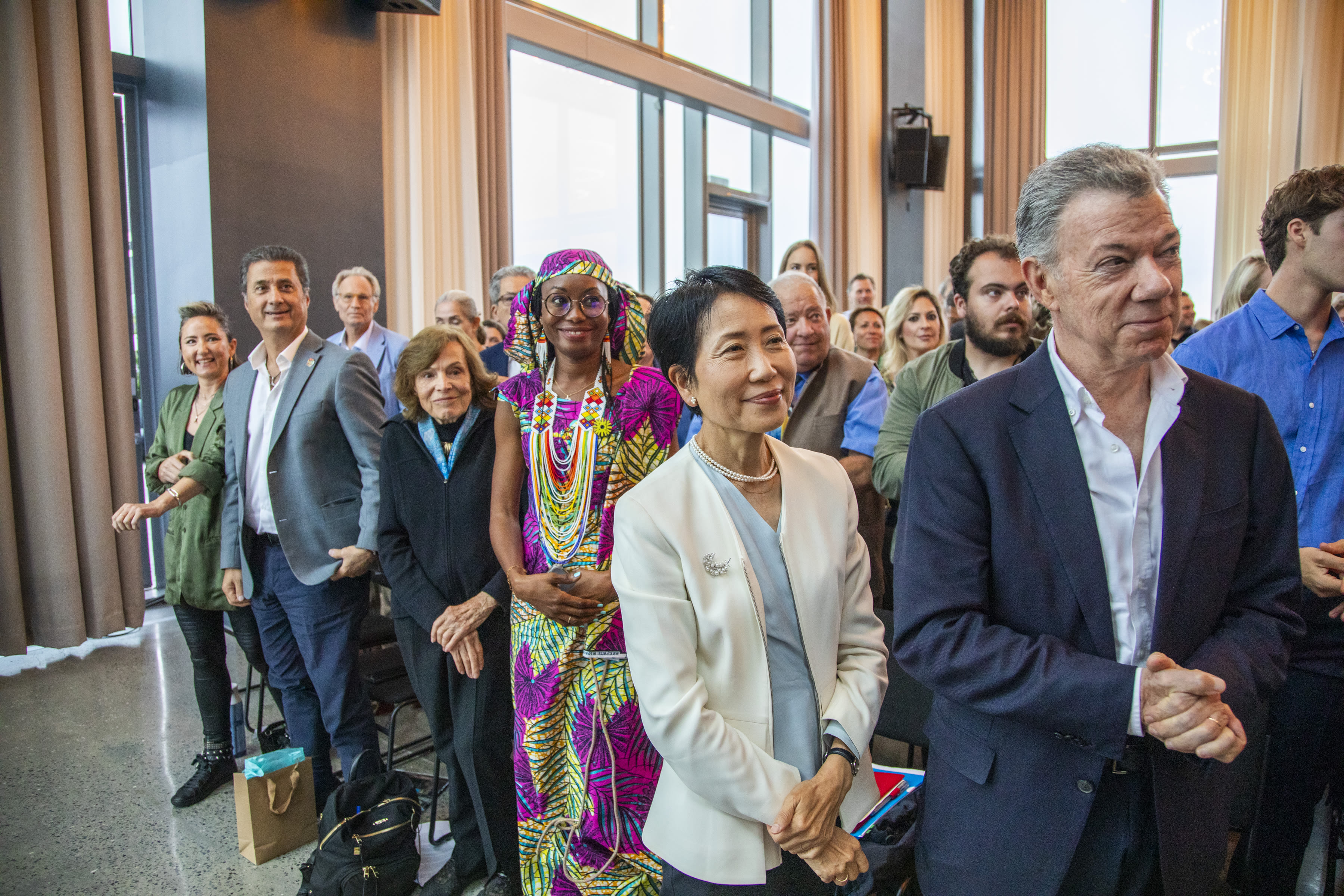An optimistic look at the future
Change happens slowly at first - and then faster than we ever thought possible. We’ve seen rapid transformations before in history, from the industrial revolution to the information revolution. Now, we’re at the beginning of the renewables revolution.
Nine years ago, the Carbon War Room merged with the Rocky Mountain Institute (RMI) to join forces on tackling the climate crisis. Together, they have grown into one of the world’s most respected organisations in this space.
We met with RMI, Bezos Earth Fund, and Systems Change Lab in New York and learned more about their latest research on the race to replace dirty fuels with clean fuels to save our planet. Their findings are hugely encouraging.
The dominant narrative on climate change is that we are not on track and at high risk of falling far short of the goal to limit the Earth’s warming to 1.5 degrees Celsius. The media, and most governments, approach has been - as RMI’s co-founder Amory Lovin’s loves to say - to depress people into action. But that does not work.
We know what the solutions are. Extraordinary transformative change is happening fast – much quicker than we think. Exponential growth is underway for renewables.
Here’s a few examples from RMI, Systems Change Lab, and the EEIST project’s rigorous research:
Fossil fuel use will peak this decade.
Internal combustion engine use will peak this year.
Electric vehicle sales will increase at least sixfold by 2030, making up 62% to 85% of sales.
Oil demand for cars peaked in 2019 and will essentially be eliminated by 2040.
Eight countries have already grown solar and wind at steeper rate than what is needed globally to stay on track to reach net zero emissions by or before 2050: Jordan, Palestine, Namibia, Chile, The Netherlands, Uruguay, Lithuania and ahead of them all, Denmark.
Five countries have been the leaders in EV adoption and have forged a path for other countries to follow – all ahead of what is needed to stay on track for net zero: China, Netherlands, Sweden, Iceland and far ahead, Norway.
Last year alone saw a massive leap in clean energy transitions globally. There was a 43% increase in renewable capacity, 56% in solar, 55% in electric car sales, 11% in heat pump sales, 30% in critical mining investments and energy efficiency improvements – twice as fast as the previous two years.
For solar, PV and batteries, announced manufacturing projects today meet and even exceed deployment levels required for net zero targets. Gaps remain for other technologies but are by no means insurmountable.
It was once thought rail travel was too dangerous, that the horse was here to stay, and that the Internet would collapse. The world moved on and progress was made. Now, the oil and gas industries are fighting to persuade governments and media that they will still be needed for centuries to come. They are still managing to extract trillions in subsidies from governments. But the writing is on the wall.
Exponential change is possible and together we can make it happen. It will need massive innovation, huge investments, and massive infrastructure build-ups - but it will be profitable.
As the Planetary Boundaries tell us, we have pushed right past the safe limits for most of our planets life support systems, including climate. But the huge, hopeful part of the story is the pace of change, driven by markets through business and by civil society. It is not too late – we are seeing exponential growth happening with renewable technologies all over the world.
This is both a moment of huge possibility and a race against catastrophic climate impacts. The right outcome depends on all of us stepping up to embrace sustainable exponential change in these critical next seven years.
Our children and grandchildren will then be able to live in a world powered by clean energy that costs much less than today’s dirty energy. They will live in a world where energy prices can be stable, not dictated by aggressors. And they will live in a world where the air they breathe will be clean.
This utopian world is within our grasp and together we can make it a reality.
The sooner we get there, the better for all of humanity.






